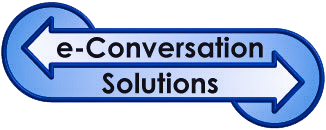You have an exciting solution. Prospects are intrigued. But how do you know who to spend your time with? Here’s are some questions to ask that will help you optimize your selling efforts.
Are you a customer that I want to work with?
First, you sell a customer not a product. So, understand who that customer is. I had a client who was a systems integrator who came across a great product that he could sell to small businesses at $99 per install. The problem: he does not sell to small customers. He had no way to process a high volume of orders, or service a wide set of diverse small business owners. His target customer was the bigger business that needed a complex software solution.
Can you afford to buy what I have to sell?
Early in the selling process, articulate what the expected order size or billing model is going to be. Tell the prospect who your ideal customer is. I worked with a public relations company that noted that they did not accept clients who bill less than $15,000 per year. If you work on a project basis, note the size of your typical project. Understand how much money your prospect might have to pay for the solution. Ever go shopping for a car? Many dealers focus initially, not on what you are looking to purchase, but if you can afford to purchase the car.
Are you serious about actually buying?
If you are selling an expertise, be wary of those prospects who ask to “pick your brain”. Those prospects are often without money or resource. That brain picking experience is just another request for free consulting services. Develop a model to qualify your prospects. If I am skeptical of a prospect’s interest in actually paying for my knowledge, I ask that minimally we talk over lunch. I may not get a contract, but at least, I’ll get a nice lunch.
Another way to qualify a prospect is to use an online form. Typically, a form is used early in the selling process to get a name and other contact information. Consider creating a more complex form that you can send as a follow up. This form might ask for requirements, pictures, or volumes. If your prospect completes the form, they are likely ready to buy. I know of an industrial manufacturer who closes almost every deal where a prospect fills out the form. Not interested in filling out the form? Likely not interested in purchasing from you.
Asked to respond to a request for quote? Before you respond, try to understand what the purpose of the RFQ might be. I have come across buyers who are using the RFQ process to research solutions as opposed to actually purchasing a remedy. Be wary of prospects who offer little information or ask you to sign a non-disclosure. They may be just picking your brain. Not sure if the RFQ is just a consulting request? Offer a price for the creating the RFQ that you can take off of the final delivered solution, if you are the selected supplier. I know of a company that spent thousands of dollars and a trip to California to respond to an RFQ, only to be told, “we’re not ready yet”. Minimally he could have been asking to have travel expenses covered. If the answer is no, not likely to buy now or ever.
Who is the decision maker?
Understand the decision making process at your prospect. Often the person who you are interfacing with, is not the decision maker. Ask your contact what is their role in making the decision. What are the steps needed to close the sale? Who actually cuts the purchase order? If you are asked to meet and review your response, ask that the decision maker be there. No decision maker? You will need to determine if continuing the process is worth the work.
Do you really want to buy from me?
Once you feel that you have agreement, give your prospect an opportunity to walk away. Let them confirm that your solution is appropriate to address their problem.





